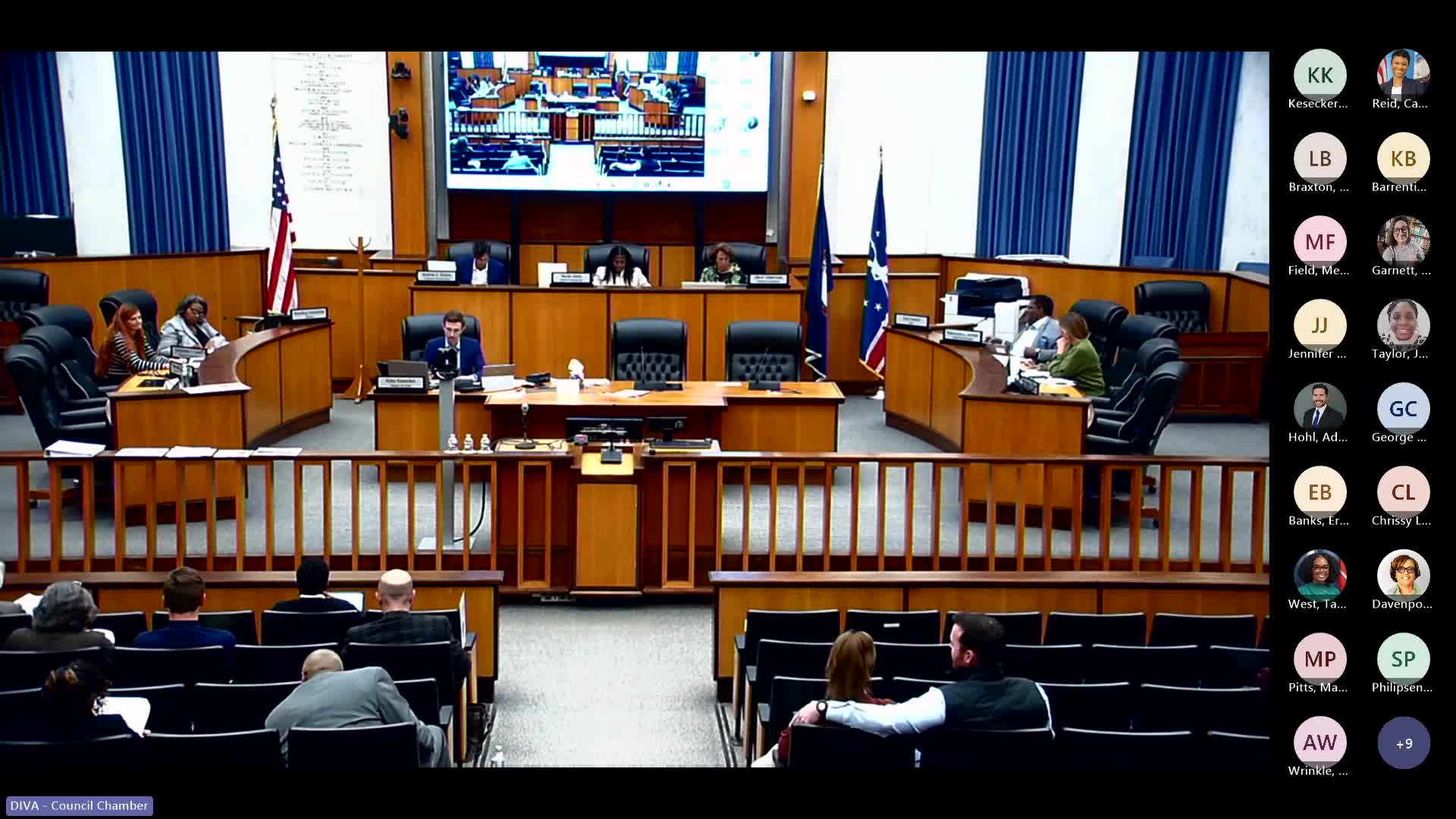Committee seeks more time on proposed civil penalties for unpermitted demolition in historic districts
Get AI-powered insights, summaries, and transcripts
Subscribe
Summary
Committee members continued a resolution directing staff to draft an ordinance to authorize higher civil penalties — up to twice a structure’s assessed market value under recently enabled state law — and asked for coordination with the Cultural Heritage Stewardship Plan and zoning refresh; the item was continued 30 days to the Nov. 18 meeting.
The Land Use, Housing and Transportation Standing Committee voted to continue resolution 2025R045 for 30 days to the Nov. 18, 2025 meeting to allow further coordination with planning work on the Cultural Heritage Stewardship Plan and the zoning refresh.
Councilmember Jordan introduced the resolution, noting the proposal grows out of Richmond 300 (adopted Dec. 14, 2020) and recent incidents of unpermitted demolition in historic areas. Jordan said the city worked with state legislators to secure enabling legislation in 2024 to allow cities to impose penalties at a higher level than previously allowed, and the resolution asks administration to draft an ordinance that would let the city impose stronger civil penalties for demolition or moving of buildings located in city old and historic districts.
Kevin Jovong, Director of Planning and Development Review, told the committee the amended state code would allow penalties “up to twice the market value of the structure.” Jovong said the implementing ordinance would include discretion to set amounts depending on circumstances and that permitting and CAR review currently flag demolition permits when properties lie inside historic districts. Jovong described a recent Churchill case where a property was demolished beyond the scope of an approved COA; the city issued a stop-work order and levied a $200 fine under the previous standard but could not recover the demolished building.
Historic Richmond’s executive director Cyan Crump told the committee the organization supports the resolution and that changes to state law were required because cities previously lacked the authority counties had to levy larger penalties.
Committee members expressed concern about coordinating the penalty ordinance with planning work underway — notably the Cultural Heritage Stewardship Plan and a zoning code refresh — and requested the draft ordinance include exemptions or emergency provisions (for example, where imminent danger to life or safety justifies immediate demolition). The committee voted to continue the resolution 30 days; record votes on the motion to continue were Mister Bridal — aye; Vice Chair Robertson — aye; Chair Jones — aye.
If the ordinance proceeds, staff said they will draft the specific penalty amounts, exemptions, and administrative procedures for council consideration. The resolution as introduced did not specify precise penalty amounts or exemptions; it requests administration return with an ordinance proposal.
